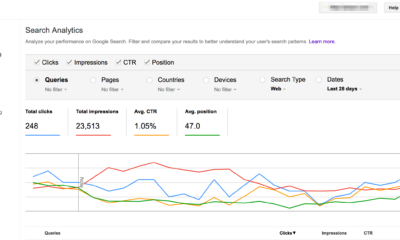Business
Google looks to the future where Search might not be its best product

We know that ever since the world got introduced to AI and its capabilities, a lot of things have changed and people are suddenly realizing that what they used to do is no longer needed. Similarly, Google, the tech behemoth synonymous with internet search, is preparing for a future where search may no longer reign supreme. As emerging technologies like artificial intelligence (AI) and machine learning (ML) begin to reshape how information is accessed and consumed, Google is strategically diversifying its portfolio to maintain its dominance in the tech industry.
At the heart of Google’s strategy is an ambitious push into AI and ML, areas that promise to redefine not just search, but the entire internet ecosystem. Google’s AI research division has been at the forefront of developing next-generation algorithms that can understand, predict, and respond to user queries in ways far more sophisticated than the traditional search box. This includes natural language processing (NLP) technologies that allow users to interact with digital assistants in conversational language, making information access more intuitive and seamless.
Furthermore, Google is expanding its reach into various sectors that complement its search engine capabilities. This includes investments in cloud computing, where Google Cloud aims to provide the infrastructure and services necessary for businesses to leverage AI and ML technologies. Additionally, the company is making significant strides in consumer electronics, autonomous vehicles through Waymo, and health technology, further broadening its impact beyond search.
Another critical area of focus for Google is the development of quantum computing. Quantum technology promises to revolutionize computing by performing complex calculations at speeds unattainable by today’s standards. Google’s quantum computing research could eventually supercharge its AI capabilities, leading to even more advanced and personalized search functionalities.
Despite these forward-looking initiatives, Google faces challenges in navigating the regulatory and competitive landscapes. Antitrust scrutiny in the United States and abroad threatens to impact how Google can leverage its search engine dominance to promote its other products and services. Meanwhile, competitors like Amazon, Facebook, and emerging tech startups are also investing heavily in AI and ML, creating a highly competitive environment. By investing in AI, ML, and other complementary technologies, Google is not just safeguarding its current dominance but is also laying the groundwork for continued relevance in the ever-evolving digital age.
-

 Domains6 years ago
Domains6 years ago8 best domain flipping platforms
-

 Business6 years ago
Business6 years ago8 Best Digital Marketing Books to Read in 2020
-

 How To's6 years ago
How To's6 years agoHow to register for Amazon Affiliate program
-

 How To's6 years ago
How To's6 years agoHow to submit your website’s sitemap to Google Search Console
-

 Domains5 years ago
Domains5 years agoNew 18 end user domain name sales have taken place
-

 Business6 years ago
Business6 years agoBest Work From Home Business Ideas
-

 How To's6 years ago
How To's6 years ago3 Best Strategies to Increase Your Profits With Google Ads
-

 Domains5 years ago
Domains5 years agoCrypto companies continue their venture to buy domains








